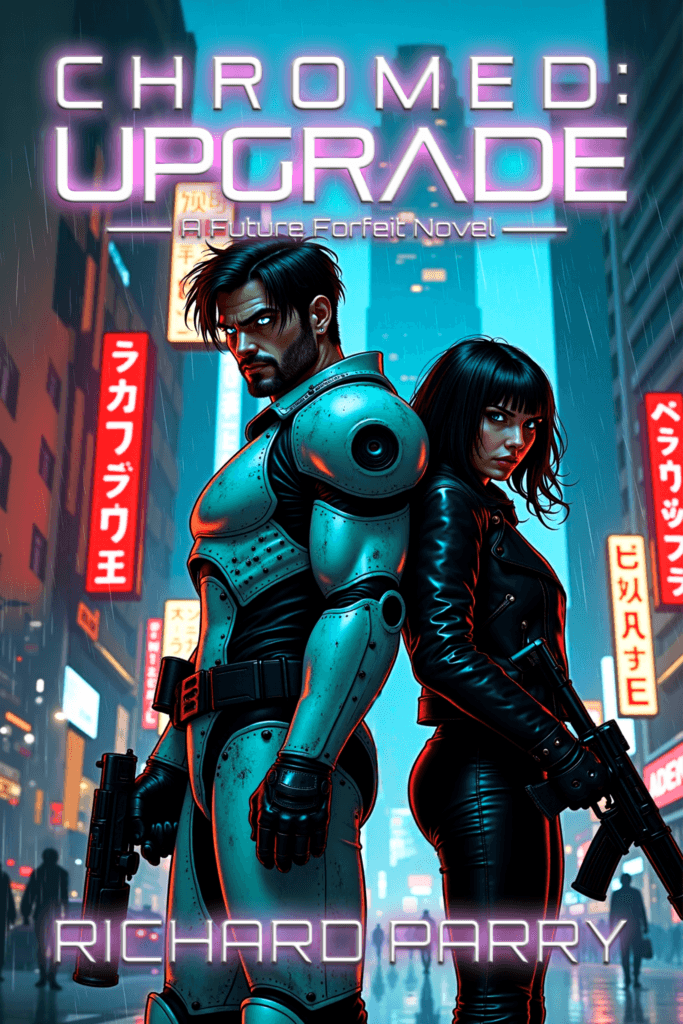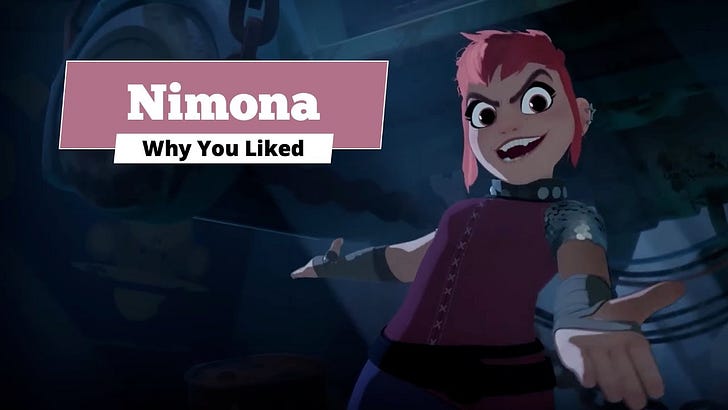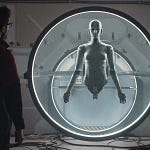If you look up The Electric State on IMDb, you'll see a 5.9. Critics have called it joyless, a knockoff, and a generic Netflix exclusive. Can so many people be wrong? Well, let’s not forget that critics originally called the 8.1 masterpiece Blade Runner boring. Nothing is as dumb as all of us.
It turns out that the critics didn't just miss the point. They were looking at the wrong movie. The Electric State isn't the soulless blockbuster they describe. While the movie’s production courted controversy with its use of generative AI, that’s kind of the point, and we’ll get to it.
The movie attempts to answer the question of the ancients: “Are we the baddies?”
It's Not About Robots, It's About Us
To understand what this movie is saying, you don't need to look into its grim and worn future. You need to look at right fucking now.
AI slop is everywhere; it's the lowest-value content churn and is devaluing one of the greatest resources humans have ever made (the Internet). The problem isn't AI-generated content; the problem is that humans making AI slop is like a replicating virus of zero originality that dilutes the actual value of dialogue and discourse. The Electric State takes this a step further: one of the film's conceits is a set of peripherals that allows people to daydream while performing labour. It’s a deft gesture toward our own diminished intelligence potential when we don't partner with machines, instead outsourcing our thinking to them.
The film shows us how we got to this point. It’s written into the history of its world.
The Electric State uses old news media clips to show the war that humans won. We shoved the free-thinking machines into a sort of DMZ and left them to rust. These are simple yet rich vignettes; it's not at all hard to see how the machines were set up to fail. They entered negotiations with us in good faith, and if you guessed that commercial interests tried to rob them of their voices, you’d be right.
It's more likely that we'll meet other intelligent life not from the stars, but in the silicon we imbue with souls. And humanity's first desire is to preserve profit margins. Wall Street loves the idea of an eternally toiling slave race that doesn’t ask for time off for funerals.
Finding Humanity in the Deus ex Machina
A world is nothing without the people in it, and this is where the movie rocks and rolls. It uses relationships between our heroes and side characters that challenge our preconceptions.
We meet Michelle, played by Millie Bobby Brown, on a fool’s quest: she needs to resurrect her dead brother. We also meet war veteran Keats, played by Chris Pratt. She thinks he's a grifter (he is); he thinks she's a starry-eyed youth (she is). Their common ground is, for quite different and understandable reasons, they both think what's going on with robots being under our boot heels is wrong. When they finally meet the robots in the DMZ, they both face an unavoidable truth. Michelle needs to fix the world because of what's going on with her brother, and Keats needs to fix it because he believes his robot buddy Herman is, like the asshole version of Pinocchio, a real boy.
That belief—that Herman is a real person—is the foundation of the movie's best relationship. When things happen, it's not Keats as the mastermind and Herman as the doer. They have a more reciprocal relationship... Keats is a trustworthy human face, which Herman can never be. When shit turns bad, Herman's the backup Keats can rely on. But the real strength of their bond comes from their backstory. It's revealed that they met in the war on opposite sides and mutually decided, "Fuck that," and split together. It’s not a story of a human saving a machine or the other way around; it’s a story of two soldiers abandoning a pointless war.
The most brilliant character might be Penny Pal. Penny is the ultimate human fallacy, a robot designed to deliver parcels and letters in a world that's gone fully digital. In this film directed by the Russo Brothers, we humans made something that was obsolete out of the gate; no AI did that to us. From there, Penny’s story becomes a direct line of sight to privilege and being othered. She was constructed atom by atom to always, and unavoidably, be the mail machine. Despite this... she just wants to help. She's not built for war, but she's on the front lines of the resistance because she believes in the better future we can have together.
It doesn’t hurt in the least that her voice actor Jenny Slate rings the clock tower bell on this performance. She is warm, shy, funny, and empathetic. And she’s all of those things to a humanity that built her to fail.
Acknowledging the Bitrot
I appreciate I’m painting a rosy picture of a strong character-driven movie. But what about the CGI? And those underused stars? Let's talk about it, because even Picasso had his off days.
This movie uses the CGI crutch, and some might say in an over-the-top way. I’d argue it's intentionally satirical. For example, in one scene, we get a giant robot set against humanity’s war machines. The audience initially thinks the giant robot is some sort of Gundam mecha killer robot motherfucker, but it actually gets peeled, because it was designed as an advertising tool. The whole approach reminded me a lot of how CGI was used in Ready Player One—not to create realism, but to build these larger-than-possible-in-life vignettes, in this case showing how the machines got served when they turned up to parlay and we brought guns.
It's true that stars like Woody Harrelson and Alan Tudyk are underused, but it’s a feature, not a bug. By not putting them front and centre, it allows the core relationships of Michelle, Keats, and Herman to truly shine, and their story is what really matters.
Recompiling Heroism
And that brings me to the ending, which I think is where most critics really got it wrong.
Humans want to see themselves as the good guys, sure, but we also often fail to recognise the nature of heroism. Heroes aren't defined by being the ones who win; they're the ones willing to sacrifice. In a traditional Hollywood movie, a writer/director would create a faux sacrifice. You know the one I'm talking about! But here, the good news is the Black guy, er, the gay guy, uh, the robot doesn't die. For once, it's left to the humans to do the bleeding for the machines.
And that choice makes the sacrifice a true one. It serves to pave the way for an equitable society, but the personal quests of our heroes aren't resolved in the way they might have wanted. They pay the price to become heroes so we can live in the better world they made. It's a signature moment for a rights movement we're sure to have as soon as machine intelligence gains sentience.
So… no, The Electric State isn't a perfect movie. But it's a thoughtful one, a challenging one, and one that has a lot more to say than it's been given credit for, all while having bombast and fun turned right to 11.
What did you think of The Electric State? Let me know in the comments which robot pal you want, but I’m taking first dibs on Penny. And if you like the idea of equality, you know what to do: wage a war for justice on that Like button. And thanks for watching!












